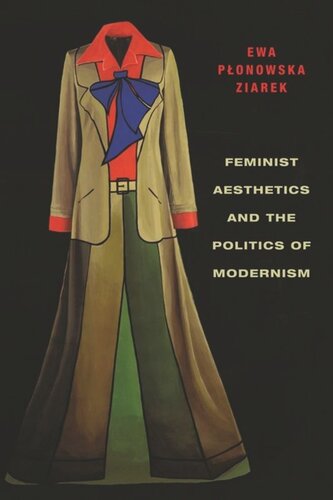

Most ebook files are in PDF format, so you can easily read them using various software such as Foxit Reader or directly on the Google Chrome browser.
Some ebook files are released by publishers in other formats such as .awz, .mobi, .epub, .fb2, etc. You may need to install specific software to read these formats on mobile/PC, such as Calibre.
Please read the tutorial at this link: https://ebookbell.com/faq
We offer FREE conversion to the popular formats you request; however, this may take some time. Therefore, right after payment, please email us, and we will try to provide the service as quickly as possible.
For some exceptional file formats or broken links (if any), please refrain from opening any disputes. Instead, email us first, and we will try to assist within a maximum of 6 hours.
EbookBell Team

0.0
0 reviewsEwa Ziarek fully articulates a feminist aesthetics, focusing on the struggle for freedom in women's literary and political modernism and the devastating impact of racist violence and sexism. She examines the contradiction between women's transformative literary and political practices and the oppressive realities of racist violence and sexism, and she situates these tensions within the entrenched opposition between revolt and melancholia in studies of modernity and within the friction between material injuries and experimental aesthetic forms. Ziarek's political and aesthetic investigations concern the exclusion and destruction of women in politics and literary production and the transformation of this oppression into the inaugural possibilities of writing and action. Her study is one of the first to combine an in-depth engagement with philosophical aesthetics, especially the work of Theodor W. Adorno, with women's literary modernism, particularly the writing of Virginia Woolf and Nella Larsen, along with feminist theories on the politics of race and gender. By bringing seemingly apolitical, gender-neutral debates about modernism's experimental forms together with an analysis of violence and destroyed materialities, Ziarek challenges both the anti-aesthetic subordination of modern literature to its political uses and the appreciation of art's emancipatory potential at the expense of feminist and anti-racist political struggles.